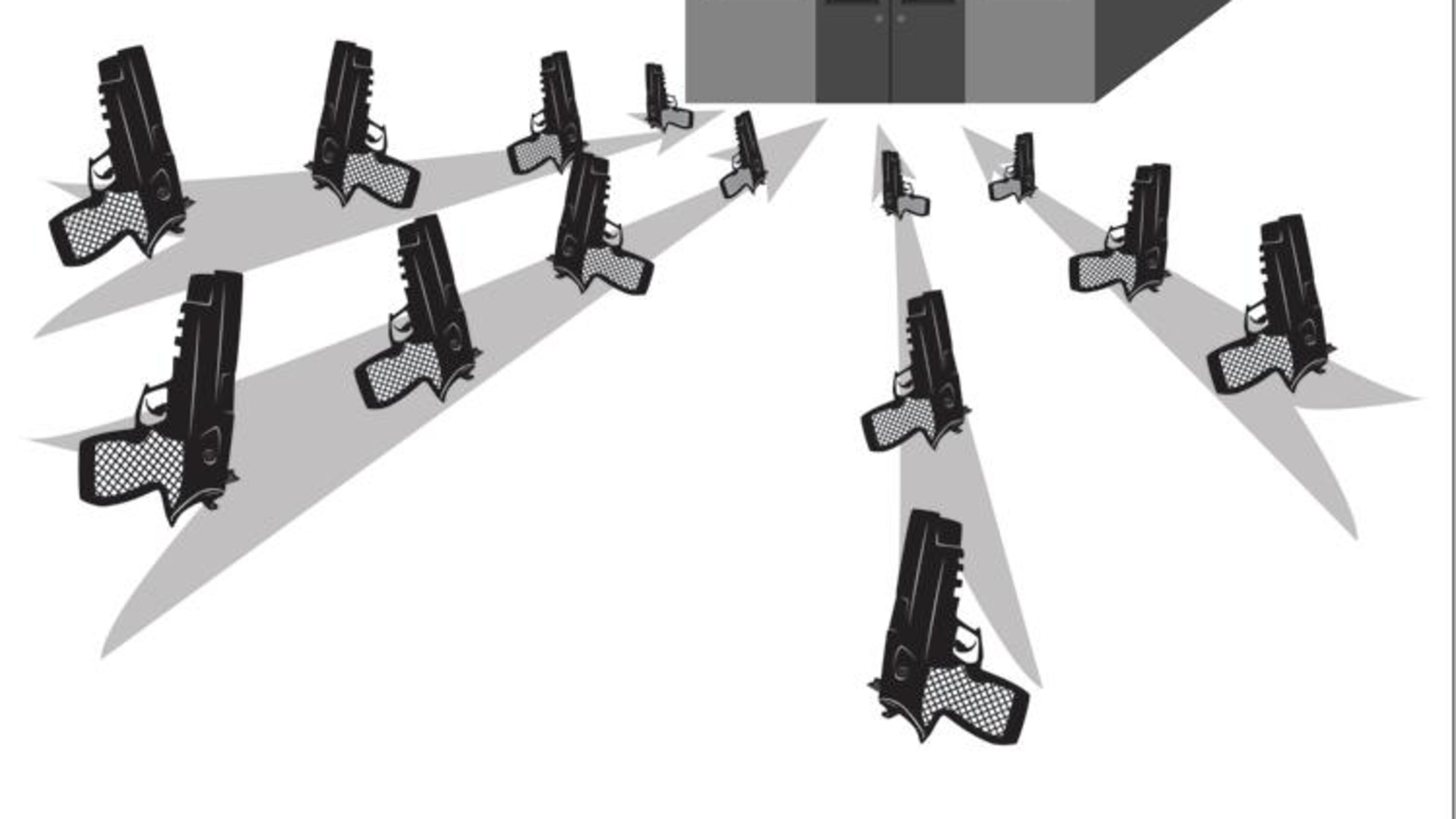Will guns on campus run off top faculty? Yes, says a departing professor.

After a decade at the University of Kansas, noted scholar Jacob Dorman resigned his tenure position in response to conceal carry being allowed in Kansas college classrooms starting July 1. That is the same date a law signed a few days ago by Gov. Nathan Deal will open public campuses in Georgia to guns.
Dorman's resignation letter, which appeared in the Lawrence Journal-World, is going viral and generating a lot of discussion among people who work on college campuses including in Georgia.
Dorman is jointly appointed at KU in History and American Studies. He received his doctorate from UCLA in 2004 and an A.B. from Stanford University summa cum laude in 1996. He's won an ACLS Charles Ryskamp Fellowship, a National Endowment for the Humanities Fellowship at the Newberry Library, the Andrew W. Mellon Postdoctoral Fellowship at the Wesleyan University Center for the Humanities, and research fellowships from Yale, Columbia, Duke, Wisconsin, the University of Texas, Harvard University’s Du Bois Institute, and the Hall Center for the Humanities of the University of Kansas.
If you are interested in this topic, look at Inside Higher Ed, which has a story today on Dorman and a great discussion underway in the comment section. Inside Higher Ed also talks to other professors who are either retiring early or considering changing jobs in the wake of campus carry.
Among the academics commenting is one who writes:
1) Most people simply are not trained to deal with an active shooter situation. It does not matter how great you do at the range; you need to know what to do in a volatile and dangerous situation. Very few police can do it; why would we think the Average Jane can?
2) There is simply the question of comfort level. I hear/read pro-concealed carry folks say that my students (all of them??) are already carrying. I imagine some might be, but as soon as they are discovered, they are expelled/suspended. Further, even if some of my students are carrying, why would I want to open the door to all of them (and my colleagues) doing so? One need not be a teacher of 'controversial' materials; one need only be one who sometimes gives out low grades.
To which someone else replied:
Of course this is true. But we are not asking average Jane to perform the function of police officers, who are asked to enter an active shooter situation to deactivate the active shooter. Instead, average Jane wants to be able to defend herself as best she can when she finds herself against her will in an active shooter situation. If Jane is in a classroom when an active shooter starts moving from one classroom to another, killing people indiscriminately, she would much rather be armed than not, whether or not she is trained in active shooter situations. Admittedly, these are extremely rare situations, but some average Janes will be more risk averse than others
Here is an excerpt of Dorman's letter. You can read the full piece here.
I have enjoyed getting to know Kansans from all parts of the state as my students, neighbors and friends, and especially benefited from getting to know Kansans from rural communities where gun ownership and hard work are equally a way of life. But Kansas will never secure the future that it deserves if it weakens its institutions of higher learning by driving off faculty members or applicants who feel as I do that there is no place for firearms in classrooms. Kansas can have great universities, or it can have concealed carry in classrooms, but it cannot have both.
In practical terms, concealed carry has proved to be a failure. Campus shootings have become all too frequent, and arming students has done nothing to quell active shooter situations because students do not have the training to effectively combat shooters and rightly fear becoming identified as a suspect themselves. But beyond the fact that concealed carry does not deter gun violence, the citizens and elected representatives of Kansas must recognize that Kansas is a small state, and in order to run a premier university, which is necessary for the health and wealth of the state, it must recruit professors from out of state. Recruiting the best trained professors necessarily means recruiting from coastal areas and progressive college towns where most people do not believe that randomly arming untrained students is a proper exercise of the Second Amendment's protection of a well-regulated militia.
Let us not let the NRA destroy the future of the state of Kansas with a specious argument about the Second Amendment. Guns do not belong in classrooms any more than they belong in courtrooms, but a university simply cannot afford metal detectors at every entrance. Kansas faces a very clear choice: Does it want excellent universities, with world class faculty, or does it want to create an exodus of faculty like myself who have options to teach in states that ban weapons in classrooms?



